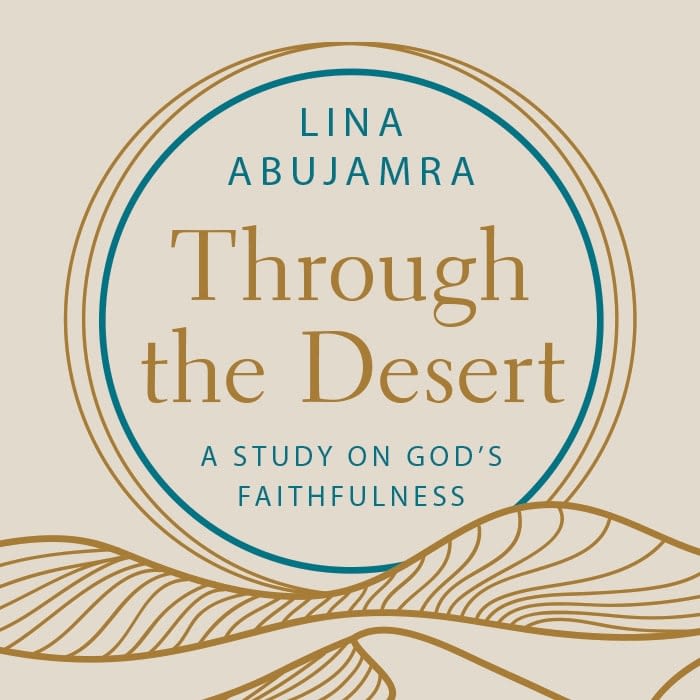At one point we were all beginners at something. Establishing yourself as a beginner puts you in the perfect position to learn. In 2015, I was a beginner when it came to studying the Bible.
Ironically enough, I had been around Scripture my whole life, but when it came to studying the Bible, I was a newbie.
Studying the Bible can feel intimidating, especially for beginners. I completely understand if approaching Bible study can even bring forth anxiety if you don’t know where to start. But I want you to know that God’s Word is a gift, and you don’t have to feel overwhelmed.
Here is an encouraging guide on how to study the Bible for beginners. As I share a mistake or two that I made in my own studying journey, my hope is that I can prevent you from doing the same.
Don’t give up—you’ve got this!
1. Gather Your Bible Study Materials
Before you begin your Bible study, you may want to gather a variety of materials to help you better understand what you’re reading. Here are a few suggestions you may find helpful.
A Study Bible
If you want to learn how to study the Bible, a good study Bible is the perfect tool to help you begin. Study Bibles have notes written by Bible scholars included usually at the bottom of each page detailing the historical context, word usage, or other additional helpful information. Some of my favorite study Bible translations are the CSB Study Bible, the NIV Study Bible, and the ESV Study Bible.
A Prayer Journal or Notebook and Writing Utensils
You’ll likely come across Scripture passages you want to remember or the Holy Spirit may give insight into a verse you’ll want to record. Maybe you’ll be prompted to pray specifically for someone during your time studying the Word. This is where a notebook or journal comes in handy.
Additionally, some people find highlighters and colored pens to be helpful in creating a personal system of applying colors to biblical themes or keywords found as they study or to jot down notes directly into their Bible.
A Trusted Commentary
Commentaries break down books of the Bible passage-by-passage, which is helpful when you are looking for more context and scholarly insights. There are online versions (try the Blue Letter App) and hard copies available. Check with your pastor to see if commentaries are available for lending through your church.
A Bible Reading Plan
Having a plan will help you be consistent in your studying. Here are some examples:
- Start with the Gospels (Matthew, Mark, Luke, and John) and the story of Jesus.
- If the story of Jesus is familiar, start with Genesis and work your way through the Bible.
- Read the Bible chronologically in the order it was written. Download the Bible App and begin one of the many plans they have readily available.
- Join a beginner Bible study at your local church. A great beginner Bible study is one that equips you with study skills to put into practice on your own and also allows you to come together to discuss Scripture in community with other believers.
Now you’re ready to dig in and study the Bible!
2. Begin Your Bible Study with Prayer
By beginning your Bible study time with prayer, you can ask God to help you focus. Bring possible distractions before God and seek His help in keeping you on the task at hand.
One of my favorite Scriptures to pray before beginning is Psalm 119:18: “Open my eyes, that I may behold wonderous things out of your law.”
Pray for an open heart and mind as you begin your Bible study. Invite the Holy Spirit to be a part of your Bible study process to give you curiosity and a desire to know God more fully.
3. Read the Text Slowly and Look for Key Words
Bible study is not a race. Take your time!
As you read, use your highlighter or pen to identify words or phrases that may have been repeated or accentuated. These are key words that will help you have a better understanding of the text. Your study Bible will give you additional notes and commentary about key words and phrases in the margins or underneath the Scripture.
Also, look for contrasting pairs of words, such as light and darkness or righteousness and sin. Keep an eye out for commands and promises from God or verses that give insight into who God, Jesus, and the Holy Spirit are. These will help you identify some of the underlying themes of the passage.
As a tip, try rewriting the Scripture in your own words by using the key words you underlined to help you remember and absorb Scripture during Bible study. Writing will also activate several regions of the brain, making recalling or memorizing the Scripture easier.
4. Look for Cross References
A cross reference is a verse or verses that are similar or related to what you are reading. The reference will be indicated as a small letter within the Scripture that corresponds to a verse or list of verses in the margins or at the bottom of the page.
For a deeper understanding of the concept or theme, read those cross references. When studying the Bible, this is one of the best ways to uncover biblical truths.
Does the cross reference quote another passage in the Bible? Does it contain a word, idea, or similar story from a different point of view? Cross references will help you see how topics are addressed throughout the Bible for better clarity and understanding.
You may find that a cross reference will take you to another passage that directly quotes the Scripture you are studying. It also may contain the same key word, main idea, or similar story from a different point of view. All these different scenarios will lead to a greater understanding by using the Bible as your guide.
5. Consider the Context of Scripture
Looking at the context of Scripture is key to grasping the full understanding of a verse. Reading the surrounding verses and weighing the historical, cultural, and even literary perspective in which it was written will shed much-needed light on your study. If you’re using a study Bible, it will give you great context notes to introduce each book of the Bible as well as throughout the text.
Ask these questions as you study and write down the answers in your journal or notebook:
- Who wrote this book of the Bible?
- When was it written?
- Who was the audience?
- Where does the story take place?
- What was the purpose of this book?
Look at the verses before and after your passage to keep the right perspective in focus as you study the Bible. I have made the mistake of misinterpreting Scripture by isolating one verse without taking into consideration the surrounding text, and it can completely change the meaning of the verse.
After you have exhausted your own understanding of the context, use a commentary to help answer any additional questions you may have. Many commentaries give verse-by-verse insights into the historical and cultural background of the text you are reading. It’s a wonderful supplemental tool for Bible study.
6. Reflect on What You Read in Your Bible Study
Scripture is a gift! Part of that gift is getting to know the beautiful character of God through the words He has given us. As you read Scripture, ask questions like:
- What does this passage tell me about God?
- What does this passage tell me about myself?
- What does He want me to do or change?
These questions will help you learn more about God and His heart.
Pull out your prayer journal and develop what you learn about God into a prayer. It can be a prayer of gratitude for His character and how much He loves you or a prayer of repentance when you feel like you have strayed from what He commands.
7. Apply What You Learn
God consistently shows me something when I approach my Bible study with a heart of seeking application. Scripture is meant to have a transformative power in our lives. This not only applies to knowledge but action as well. We are to be “doers of the word” (James 1:22–25).
I want you to keep in mind that the Bible is a story that is God-focused, not human-focused. When you are looking for application, reflect on God’s character first. Keep Him at the forefront. I have made the mistake of looking for myself in Scripture before seeking Him. Application is one part of the process, not the entire purpose.
Here are some examples of how you can apply what you learn:
- Memorize Scripture to keep God’s truth front and center throughout your day.
- We need to obey. Do what the Scripture says.
- Allow your time in Bible study to purify you. Did you come across a verse that exposes sin in your life? Seek repentance when you feel the Spirit pressing on your heart as you read.
- Ask for God’s help to see opportunities to be more Christ-like.
Sometimes it will be easy to apply what you learn, but other times it will be harder to pinpoint the application. That’s okay! Embrace uncertainty. We are to be good students of the Word, not giving up when we approach a more difficult section of Bible study.
Studying the Bible is a journey to know God. We will never understand everything perfectly. We’re not supposed to. Give yourself grace and patience while you study. Bring God your questions. Ask for wisdom. Seek out godly counsel and commentaries when you don’t understand. And know that all of that is a part of the process! This is how we learn.
I am genuinely praying for you as you begin. You CAN do this! Be consistent and persistent as you study. Pray that your eyes and ears are opened as you read. God’s Word is a beautiful gift, and I’m confident these steps will guide you on how to study the Bible as a beginner.
Want to Spend More Time in God’s Word, but Not Sure Where to Start?
Here are a few great Bible study resources you’ll definitely want to check out.
- Where to Start Reading the Bible for Beginners
- Bible Verses Every Woman Should Memorize
- Best Bible Studies for Women: How to Empower Your Faith
- How to Choose a Good Theological Bible Study for Women (Plus 7 Top Picks)

Fall in Love with God's Word
In Fall in Love with God’s Word: Practical Strategies for Busy Women, Brittany Ann helps busy Christian women overcome spiritual resistance, create and maintain a quiet time they love, and fall in love with God’s Word like never before.

Follow God's Will
Follow God’s Will offers readers the biblical framework and guidelines they need to discover and boldly live out God’s will for their lives, even when it’s not popular, convenient, or easy.




